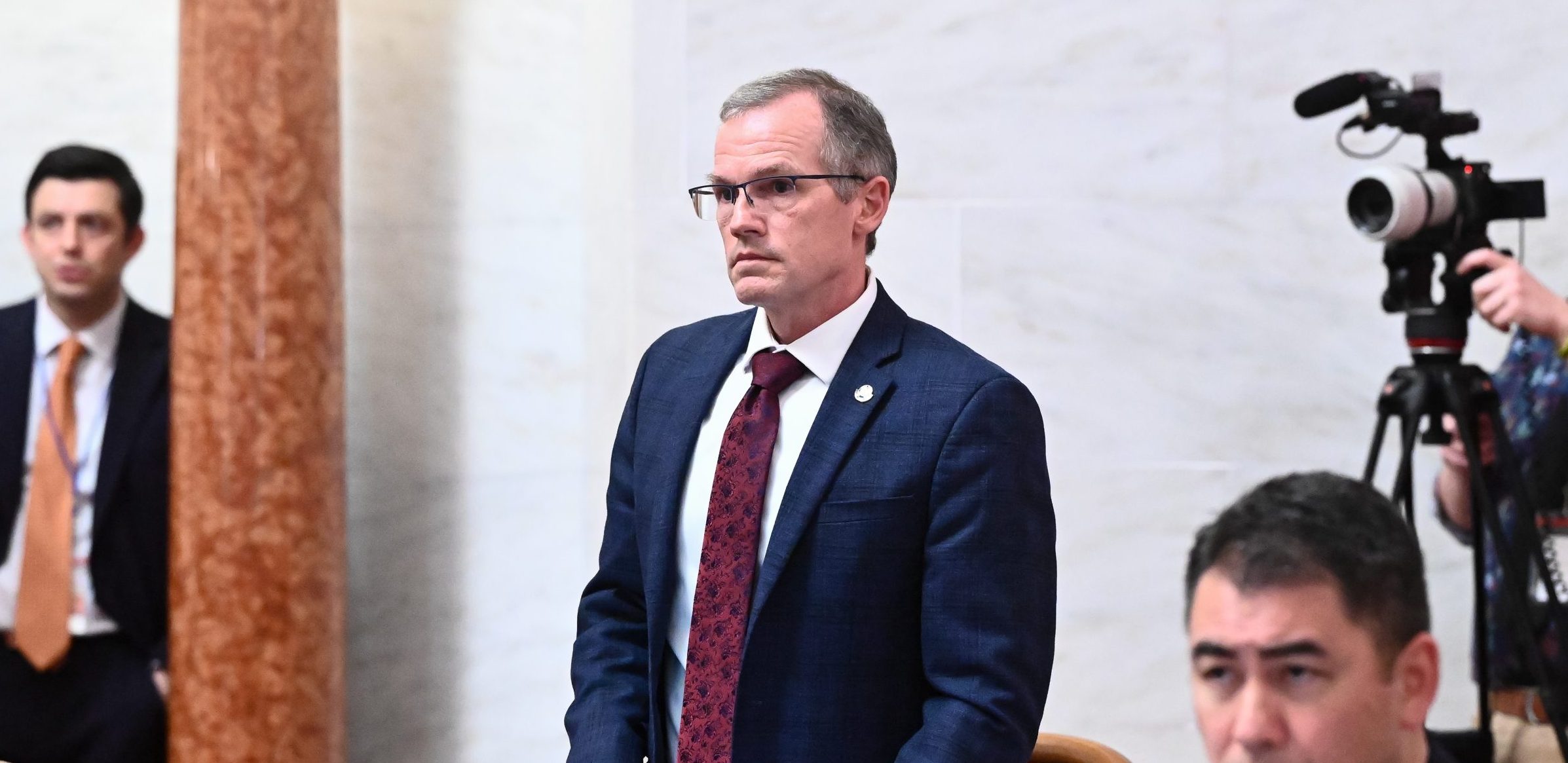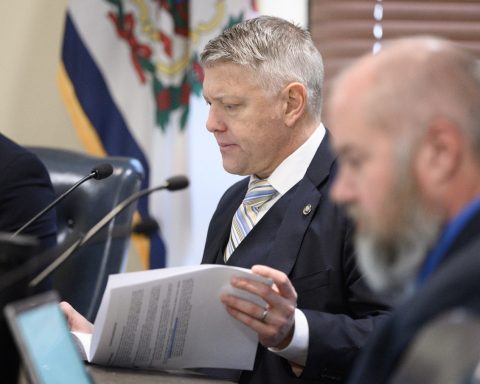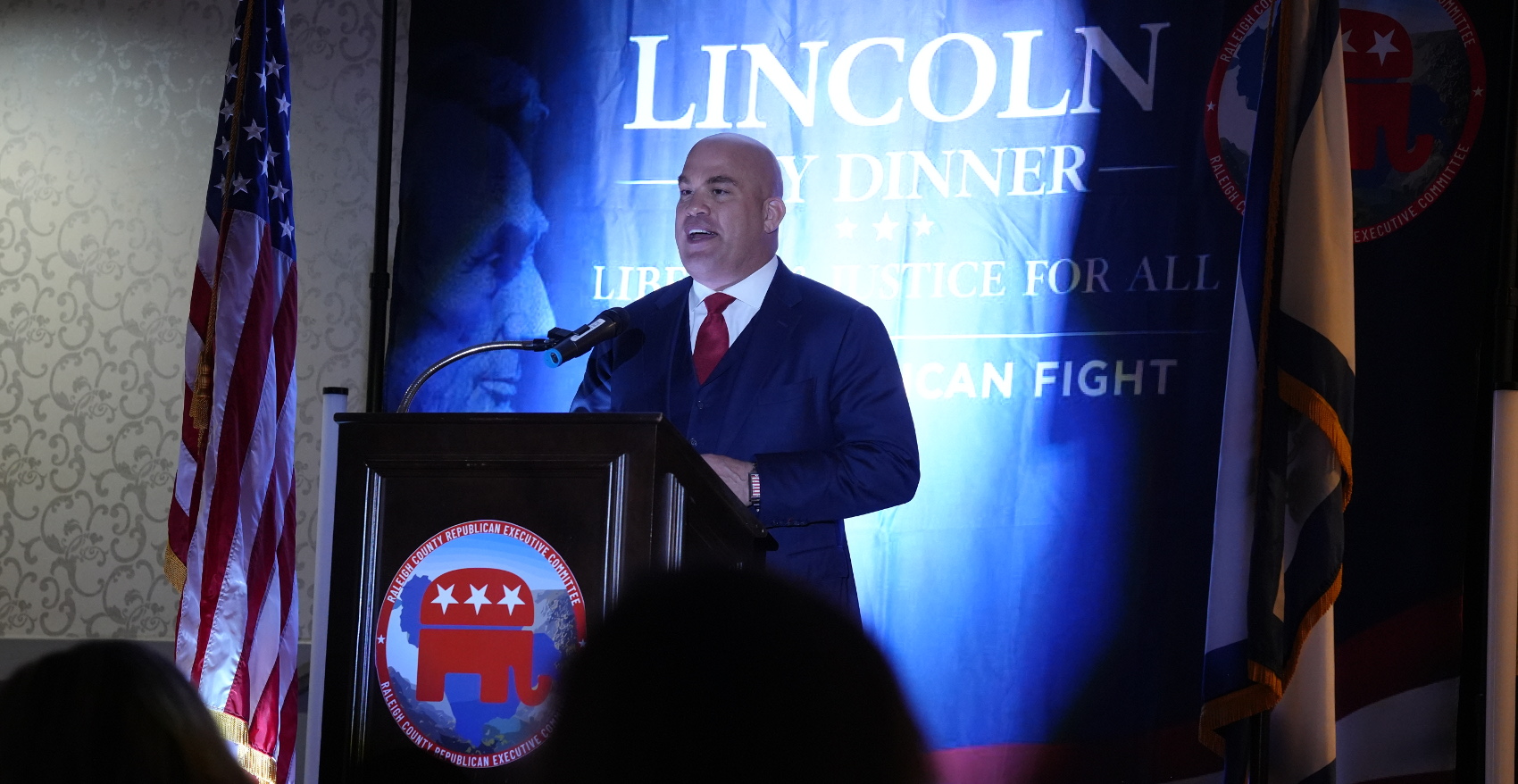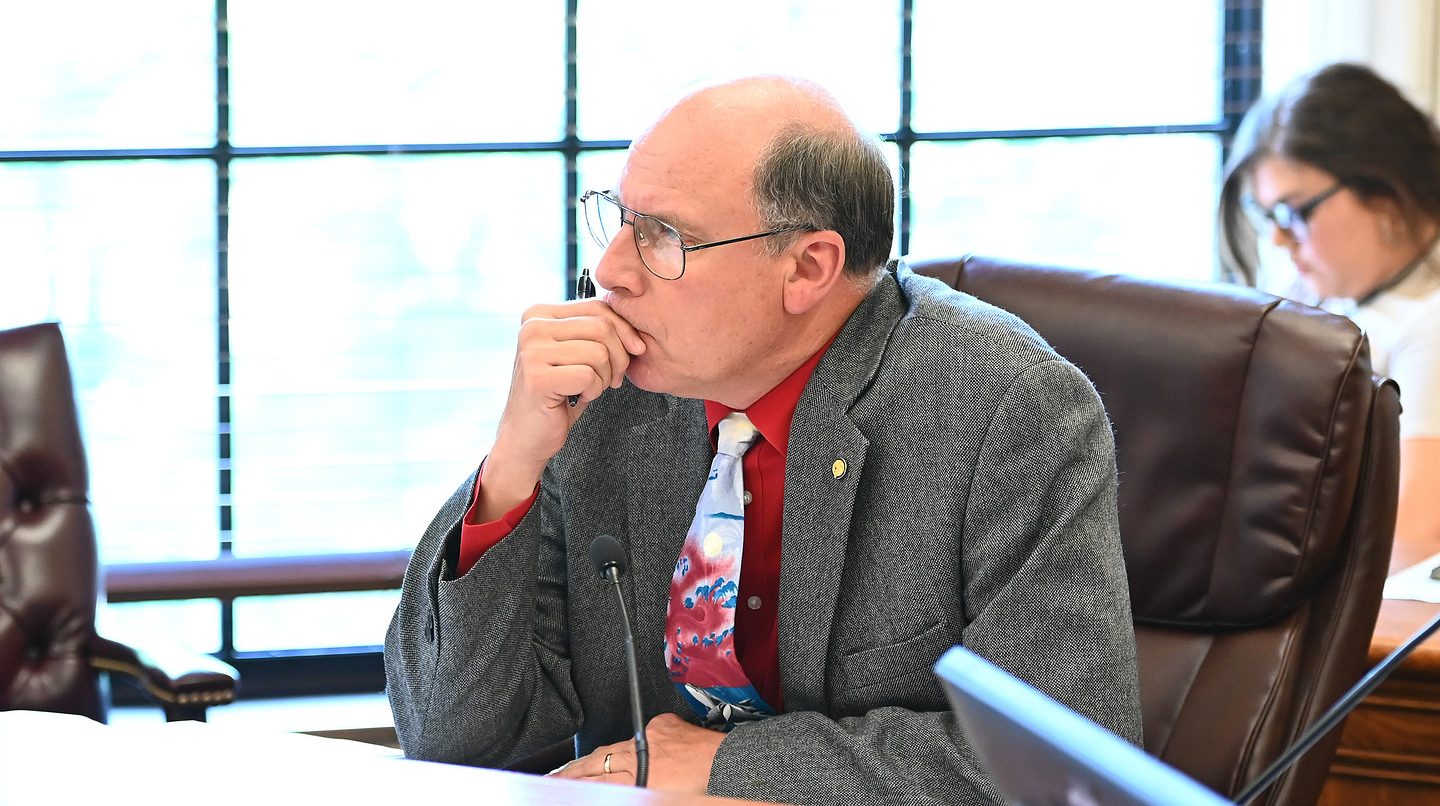CHARLESTON — Sen. Eric Tarr (R-Putnam, 4) formally recused himself from voting on Senate Bill 745 during its second reading in the West Virginia Senate on March 31, 2025, citing a potential conflict of interest due to past political contributions he has received from lobbyists.
“I would also like to request a Rule 43 to be excused from voting, because at times I have received contributions from lobbyists, and so having received those contributions I feel that I might be excused from voting and feel I might have a conflict of interest here,” Sen. Tarr stated on the Senate floor.
Rule 43 of the West Virginia Senate provides the framework for such recusals, requiring that senators abstain from voting on matters in which they or affiliated parties—such as family members or businesses in which they have a financial interest—stand to benefit directly. A senator invoking Rule 43 may have their abstention formally noted in the legislative record.
Senate Bill 745, introduced by Judiciary Committee Chairman Sen. Mike Stuart (R-Kanawha, 7), sought to tighten regulations on political contributions and lobbying practices. The original version of the bill included a ban on both lawmakers receiving contributions from lobbyists and on lobbyists soliciting or bundling contributions for political candidates—a practice in which lobbyists collect checks from various clients and present them as a collective donation to a candidate or campaign.
However, during a Judiciary Committee meeting on March 29, Sen. Tarr amended an amendment, striking the language that would prohibit lobbyists from soliciting or bundling contributions. Critics say this change undermined the bill’s core ethics reforms.
Later, during floor debate, Sen. Joey Garcia (D-Marion, 13) offered an amendment to reinforce restrictions on lobbyist contributions, adding a clause that prohibits lobbyists from offering or providing contributions to candidate committees, political party committees, or political caucus campaign committees. That amendment passed by a simple voice vote in the Republican-controlled chamber.
In a surprising move, Sen. Tarr, along with Sen. Ryan Weld (R-Brooke, 1) and a bloc of their colleagues, pressured the caucus to refer the bill to the Rules Committee, citing what they described as a “technicality” in how the bill was handled in Judiciary. Sen. Stuart, who shepherded the bill through committee and who himself voted against sending it to Rules, was unable to prevent the motion’s success.
The decision to send SB 745 to the Rules Committee effectively stalled the bill, defeating it.
Critics, including ethics advocates and a bipartisan group of lawmakers, have voiced concern that the maneuver represents a deliberate attempt to dilute or derail reforms aimed at increasing transparency and accountability in campaign finance.
As for Sen. Tarr’s recusal, it has sparked further debate about the influence of money in politics and the relationships between lawmakers and lobbyists under the Capitol dome.











